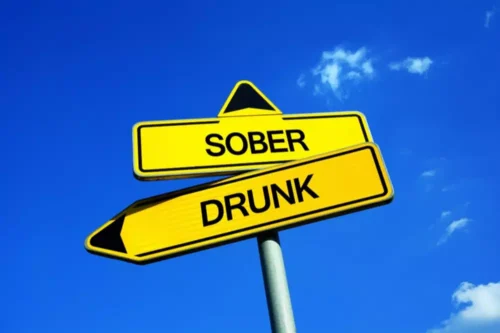
The main management for severe symptoms is long-acting benzodiazepines — typically IV diazepam or IV lorazepam. Go to the nearest emergency room or call 911 (or your local emergency service number) if you or a loved one has any concerning symptoms of alcohol withdrawal. Tap into your social network to help support you through alcohol withdrawal.
Recognizing Patients at Risk for AUD
The prodrome stage can last for 10 minutes and involves some of the first signs that a seizure may be about to happen. Symptoms that you may experience in this stage include confusion, anxiety, irritability, and headache. Some people describe a general “funny feeling” that happens in this phase. If you think you may be struggling with alcoholism or have experienced an alcohol-induced seizure, it may be time to seek professional help. For many, choosing to take that first step to seeking treatment can be scary, but you’re not alone.

Alcohol withdrawal syndrome
- Most alcohol withdrawal seizures occur between 12 and 48 hours after a sharp decline in blood alcohol concentrations.
- When alcohol consumption is stopped after prolonged alcohol abuse, these suppressive effects of alcohol are withdrawn.
- The decision not to include vital signs was based on data showing that pulse and blood pressure did not correlate with the severity of alcohol withdrawal than the other signs and symptoms included in the CIWA-Ar.
- Chemical dependence is one of the most significant factors in your risk of experiencing dangerous withdrawal symptoms when you quit drinking.
- Clients may only begin acamprosate after completely detoxing from alcohol, which may be one to two weeks after initially abstaining from drinking.
These sleep disturbances can cause daytime drowsiness, reducing the efficiency of performance of daytime tasks and increasing the risk of car crashes (Aldrich in press). Approximately 80 percent of alcoholic patients recovering from Wernicke’s syndrome exhibit the selective memory disturbance of Korsakoff’s syndrome (Victor et al. 1989). Symptoms of Korsakoff’s syndrome include severe amnesia for past events, alcohol withdrawal seizure along with impaired ability to commit current experience to memory. The patient often recites imaginary experiences to fill gaps in his or her memory. Although the patient may be apathetic, intellectual abilities other than memory are relatively preserved (Charness 1993). Korsakoff’s syndrome can occur in the absence of alcohol use; however, the disease rarely follows Wernicke’s syndrome in nonalcoholics.
- Fortunately, no matter how severe the drinking problem, most people with an alcohol use disorder can benefit from treatment.
- Outpatient treatment may be available for mild-to-moderate symptoms of alcohol withdrawal; however, should symptoms become severe, inpatient care may be required.
- However, those with a history of heavy or prolonged alcohol use can develop severe alcohol withdrawal symptoms.
- Over time, your central nervous system adjusts to having alcohol around all the time.
- Alcohol seizures can range in severity from mild to severe and can even be life-threatening in severe cases.
Higher Risks for People With Epilepsy

If you have alcohol use disorder and want to stop drinking, talk to a healthcare provider. They can help you find resources, care and support that’ll help you reduce alcohol intake safely, and also give you the best chance at a positive outcome. They can recommend https://ecosoberhouse.com/ alcohol rehabilitation programs, specialist providers, support groups and more. Complications of DTs treatments largely depend on the treatments you receive. Because there are many different medications and treatment approaches, the side effects can vary widely.

Alcohol withdrawal symptoms can range from mild to severe and even be life-threatening in severe cases. People with a long history of heavy alcohol use are more likely to suffer severe withdrawal effects, including alcohol seizures. Withdrawal occurs when a person drinks large quantities of alcohol for a period of time and then suddenly stops or reduces their intake.
Alcohol Withdrawal Timeline
Along with alcohol’s other effects on your heart, you could experience dangerous heart-related symptoms, such as stroke or cardiac arrest. As a response to chronic alcohol misuse or abuse, your body will adapt by tilting your chemical balance toward more excitatory chemicals. Unconscious functions that your nervous system controls will also be affected. That’s why alcohol withdrawal can also cause increased body temperature, fast heart rate, and hypertension. Approximately one in 10 people with alcohol withdrawal syndrome are affected by seizures.7 If left untreated, up to one in three of these patients go on to experience delirium tremens.
Medical detox programs may also involve therapies to address alcohol use disorders. Individual and group therapy sessions can help to address some of the underlying causes of your alcohol addiction. Detox is an inpatient setting with medical staff available at all times.

The deep layers of the superior colliculus send projections directly to the spinal cord via the pontine reticular formation and the periaqueductal gray. The periaqueductal gray is thought to trigger clonic seizures, whereas the pontine reticular formation is implicated in the generation of the tonic phase of audiogenic seizures (18). Some evidence suggests that the IC plays a role in alcohol withdrawal seizures in humans, as it does in rodents. Symptoms outside of the anticipated withdrawal period or resumption of alcohol use also warrants referral to an addiction specialist or inpatient treatment program. Alcoholics who are awaiting surgical or medical treatment often exhibit DT’s when their alcohol consumption is abruptly interrupted by hospitalization. Therefore, hospital staff must remain vigilant for signs and symptoms of alcohol withdrawal, even in patients not known to be alcoholic.

Hallucinations and Perceptual Disturbance
- It may be necessary for family or loved ones to make decisions if you can’t make choices for yourself.
- Stopping drinking abruptly can lead to seizures and can even be fatal.
- If you suddenly stop drinking, it’s like the alcohol side letting go of the rope.
- They should not be taken until alcohol withdrawal has already started.
To prevent alcohol withdrawal seizures, only drink alcohol in moderation or avoid drinking it altogether. Benzodiazepines are also central nervous system depressants that work in the brain the same way as alcohol. They can ease many alcohol withdrawal symptoms, allowing your body to adjust slowly. However, benzodiazepines can also be addictive, so they should be taken with a doctor’s guidance. They should not be taken until alcohol withdrawal has already started. If you experience withdrawal symptoms, it’s one sign that you’re becoming dependent on alcohol.


















